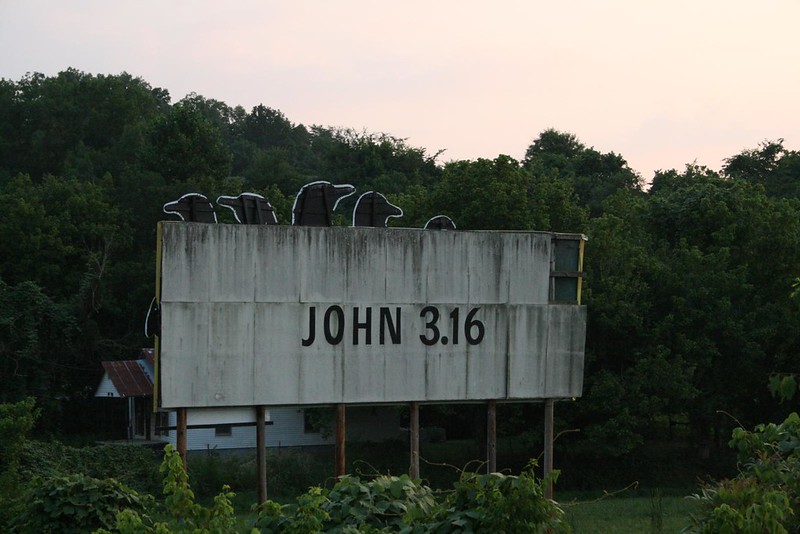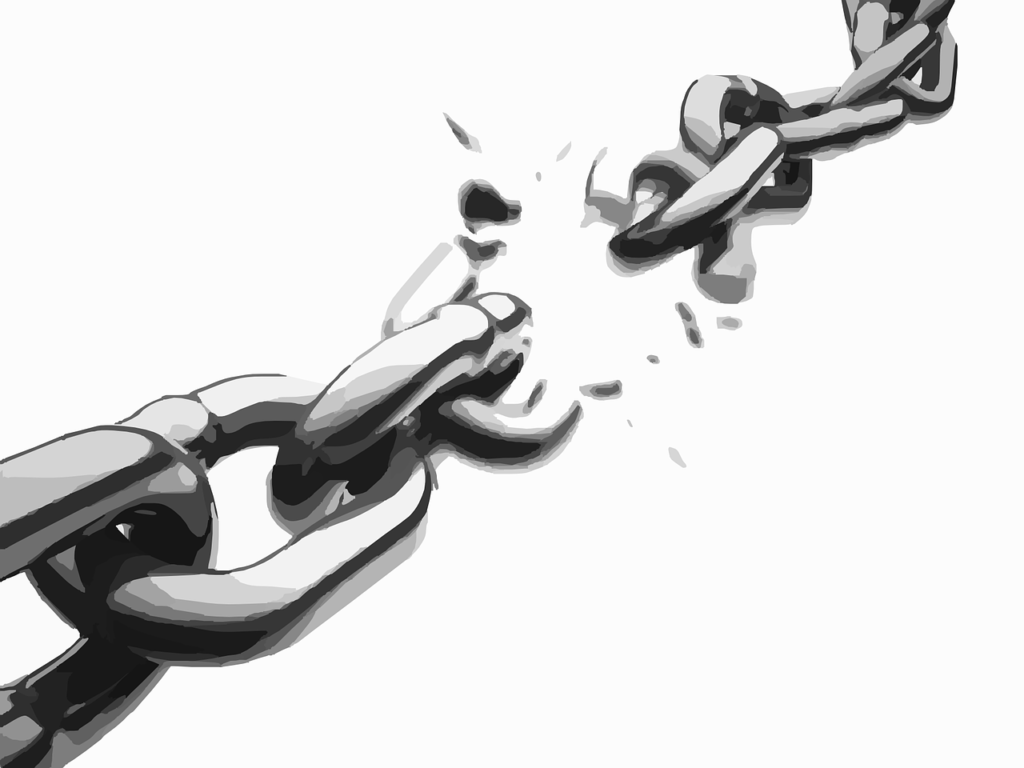
Revised Common Lectionary Reflection, Fourth Sunday in Lent, Year B
March 14, 2021
Lessons: Numbers 21:4-9; Psalm 107:1-3, 17-22; Ephesians 2:1-10; John 3:14-21
Theme: God’s faithful and generous people are, along with all of creation, caught up in the grip of God’s crazy love for every atom and molecule, every plant and animal, every rushing river and crashing sea, and every human drawing sacred breath.
Key Scripture: But God, who is rich in mercy, out of the great love with which he loved us even when we were dead through our trespasses, made us alive together with Christ—by grace you have been saved… – Ephesians 2:4-5
If you weren’t convinced last week that the message of the cross comes across as foolishness to the rational mind and logical world, then perhaps this week’s message about the crazy love of God for this beautiful broken world will resonate. From the story of the bronze serpent in Numbers to Paul’s teaching in Ephesians to one of the most famous and oft quoted verses in scripture, “For God so loved the world that he gave his only Son, so that everyone who believes in him may not perish but may have eternal life” (John 3:16), the craziness of divine love is everywhere we look.
Of course, we humans are pretty good at trying to manage God’s love in ways that make it palatable and acceptable to us. We want love on our own terms, just like we want pretty much everything else in life. We’ll hold up a sign with large letters and numbers spelling out “John 3:16,” but we forget what comes before that verse and the verse afterward that is most certainly part of the same thought. Yes, because we are always prone to conditions and rationalizations, we often forget, “Indeed, God did not send the Son into the world to condemn the world, but in order that the world might be saved through him” (John 3:17).

In short, where we would put up roadblocks and objections, God always provides a way forward. That way may not be easy, but it is there for the following. The lesson from Numbers begins with the Israelites grumbling in the wilderness. They have become impatient for the promised land, and they’re sick of the provisions God has showered on them in the form of manna. They look through the distortion lens of nostalgia back to their time as slaves in Egypt (before God sent Moses and Aaron to free them), thinking wistfully of the fertile fruits and vegetables. Their complaints and selective memory land them in a dicey situation with poisonous snakes as God fumes against their covenant breaking. God relents after the people turn to Moses and ask him to intervene on their behalf. The antidote is to gaze upon a representation of that which has bitten and poisoned them; in looking at the bronze serpent placed atop a pole they find healing. Yes, before they are healed they have to look at the very thing that is causing their death and destruction. They must face their reality head on before there is healing. The good news is that God never leaves them; God makes a way.
Today I think of my friends and acquaintances that have battled or continue to battle various addictions and/or substance use disorders. The struggles to be freed from addiction are real and rarely pretty. For most folks it comes down to the first of the Twelve Steps: “We admitted we were powerless over alcohol—that our lives had become unmanageable.” Getting to that step of admitting powerlessness over alcohol, drugs, codependency, workaholism, overeating, sex, or whatever binds you and threatens to choke the very life out of you is key to healing. Admitting that you are not in control or are in bondage to a substance or practice from which you cannot free yourself is a tough but necessary step. Arrival at this place may come after losing a friend or loved one, following an overdose, or after finally realizing you can’t fix the alcoholic or addict in your life. There’s nowhere left to go but forward, and you can’t do it alone. You need God as you understand God, and you need the love and support of a non-judgmental community.
The remaining eleven steps are no easy waltz either; relinquish control and admit that God (however understood) is the way to healing. Alcoholics Anonymous, Narcotics Anonymous, and Al-Anon Family Groups provide that vision that points to healing. Recovery worship opportunities that interweave the Twelve Steps with faith practices, worship, and communion take the healing and hope even further, providing that sacred (and non-judgmental) community.

Too often in our culture we are convinced that we ought to be able to make things right using our own will and resources. That is a lie—pure and simple. We need the message of the cross, we need to know that God loves us and will not give up on us, and we learn about and lean into the amazing grace and crazy love of God in Christ Jesus. When that message finally soaks into our weary minds and battered bones, I imagine this is how it felt when God’s covenant people gazed that bronze serpent. Yes, this is what believing in the saving grace and crazy love of the Christ does for us today. Confront the truth of sin. Look and live. You are no longer one of the walking dead; you have been made for so much more, and you are so very dearly loved.
In Worship
Does your congregation offer a recovery worship service? If not, you might want to explore whether your faith community feels called to begin one. If not, how can you better support those in your community who are in recovery or are battling active addictions. Trust me, they are there, and they need safe sacred space. Perhaps you have someone in your congregation who is willing to give a testimony/temple talk about how God has been important in helping them move beyond addiction into recovery. If you do not have anyone in your congregation, contact local treatment centers and see if you can find a current employee in recovery that would be willing to speak to your congregation. It just might lead to the start of a ministry partnership. If you can’t find someone on short notice, consider this interview with Zach Williams from which you might extract a clip:
Looking for a good contemporary song for worship this week? Consider Williams’ song “Less Like Me”:
With
Youth
Today is a perfect time to talk about God’s love versus our own human notions
of love. Invite youth to consider who has been closest in their life so far in
exhibiting unconditional love. Remind them that the great love command Jesus
taught is to love God with every fiber of your being and your neighbor as
yourself. Some discussion starter questions include:
- What do you think when you see someone holding up a sign that says “John 3:16” at a ballgame or other major event?
- What does John 3:16 lose when not paired with John 3:17?
- How hard is it to love yourself in a world that constantly sends “not good enough” messages?
- Why does God want us to love ourselves? Why does God love us so much?
- How has God revealed love for you in your own life? Who has God sent to show you love?
With
Children
This week’s focus verse is Ephesians 2:10 – For we are
what [God] has made us, created in Christ Jesus for good works, which God
prepared beforehand to be our way of life.
This week Paul, writing to the church in Ephesus, reminds us how much God loves us. How much? So much that God sent Jesus so that we may be saved by amazing grace—a pure gift. There is absolutely nothing we can do to save ourselves. No matter how many good things we do for others, no matter how well we obey our parents and elders, no matter what kind of grades we earn, or how good we are at sports or music or art—it’s all about God and not about us. But here’s the thing. Even though we don’t earn our salvation or even the life God desires us to have, we don’t get to sit around and do nothing. Our focus verse this week reminds us that God created us to do good works, to share the good news of Jesus, to let this be our very way of life.
What can you do this week in response to this amazing gift of God? How can you be a secret agent of good works, doing for others out of love for God and neighbor and not for attention or to receive in return? (Allow the children time to come up with their ideas. Write down their ideas. During the prayer bless each child and pray for them to be successful as secret agents of God’s goodness, mercy, and love.)
Finish with a simple echo prayer and blessing.
Dear God (Dear God),
Thank you (Thank you) for loving us (for loving us). Help us to do the good things (Help us to do the good things) you have created us to do (you have created us to do). Thank you for giving us real life (Thank you for giving us real life). Help us not to take for granted (Help us not to take for granted) your gifts of love, mercy, and grace (your gifts of love, mercy, and grace).
Bless (Name) and help him/her to serve you well this week. (Repeat for each child). And let all God’s children say Amen (Amen)!
Weekly
Stewardship Bulletin Insert
The final verse of our epistle reading reminds us that God
has created us for a life of service, love, and good works. We offer
ourselves—our time, our talents, and our resources—in thanksgiving for the
gracious gift of God’s amazing grace and love. Thank you for responding
generously!
Stewardship at Home
This week become secret agents of good works! What’s that all about? Read the epistle lesson with your family or those in your household. Discuss together what it means that God has created us in Christ Jesus for a life of good and good works. How might you do good works this week “secret agent style”? Who can you surprise by meeting a need or paying something forward. Could each person in your household come up with one good work each day? Help any children in your family to plan their secret good works. You may want to set a budget for each person for the week. Here are a few ideas to get you started:
- Fill a blessing box (canned goods and non-perishables) or Little Free Library in your community.
- Pay for the person’s order behind you in the fast food drive-thru.
- If you see an expired meter where someone is likely to get a ticket, put some money in it.
- Do some secret yard work for an elderly neighbor, or plant some flowers, or fill a pot with spring flowers and plants.
- Give a gift certificate to a single mom for an oil change or some other important maintenance.
- Bake a pie or some cookies and make a special secret delivery to someone (you’ll have to figure out how to do it in a way that feels safe to that person)
- Check with your local school system about paying off some children’s lunch balances or library fines.
The ideas are limited only by your imagination! You may be surprised to find out how much fun it is to give and do good in secret.
2018 Reflection: https://www.stewardshipoflife.org/2018/03/love-so-amazing/
2015 Reflection: https://www.stewardshipoflife.org/2015/03/living-in-the-light/
2012 Reflection: https://www.stewardshipoflife.org/2012/03/from-wrath-to-worth/
Note: Reprint rights granted to congregations and other church organizations for local, nonprofit use. Just include this note: “Copyright (c) 2021, Rev. Sharron Blezard. Used by Permission.” Other uses, please inquire: thewritelife@hotmail.com.



Leave a Reply